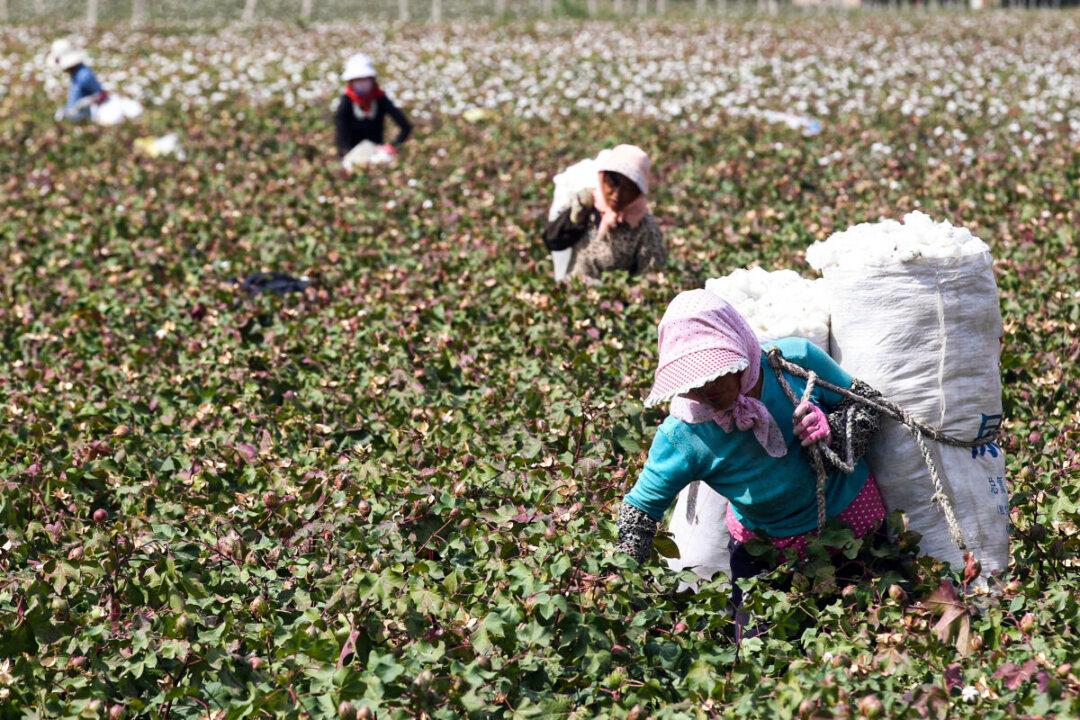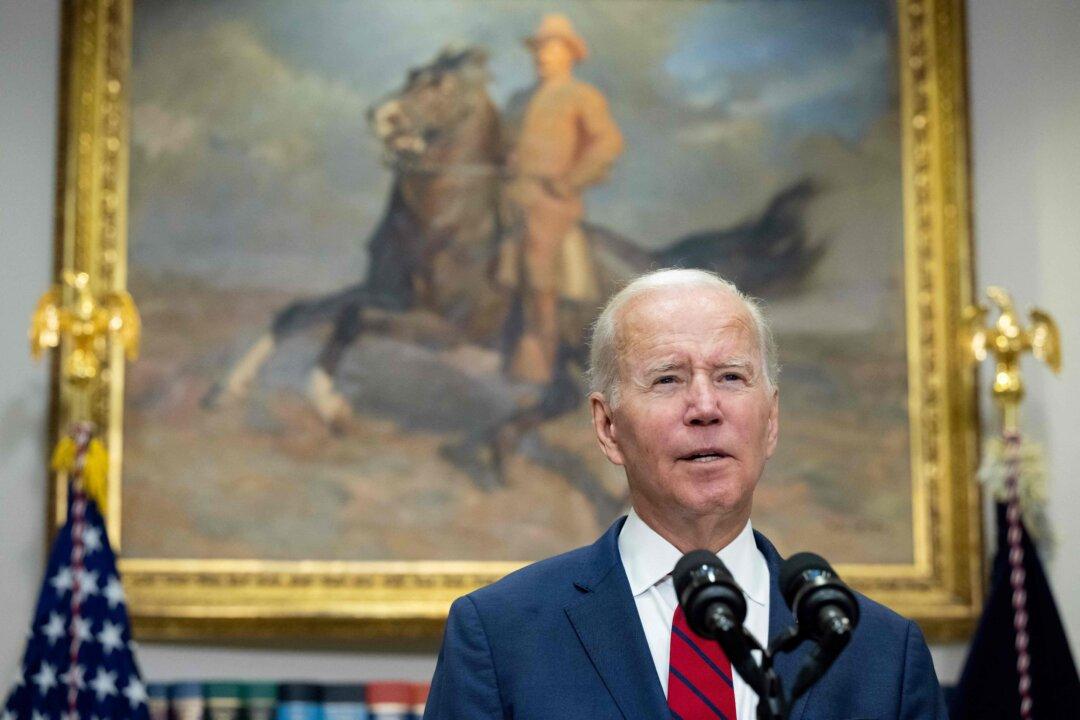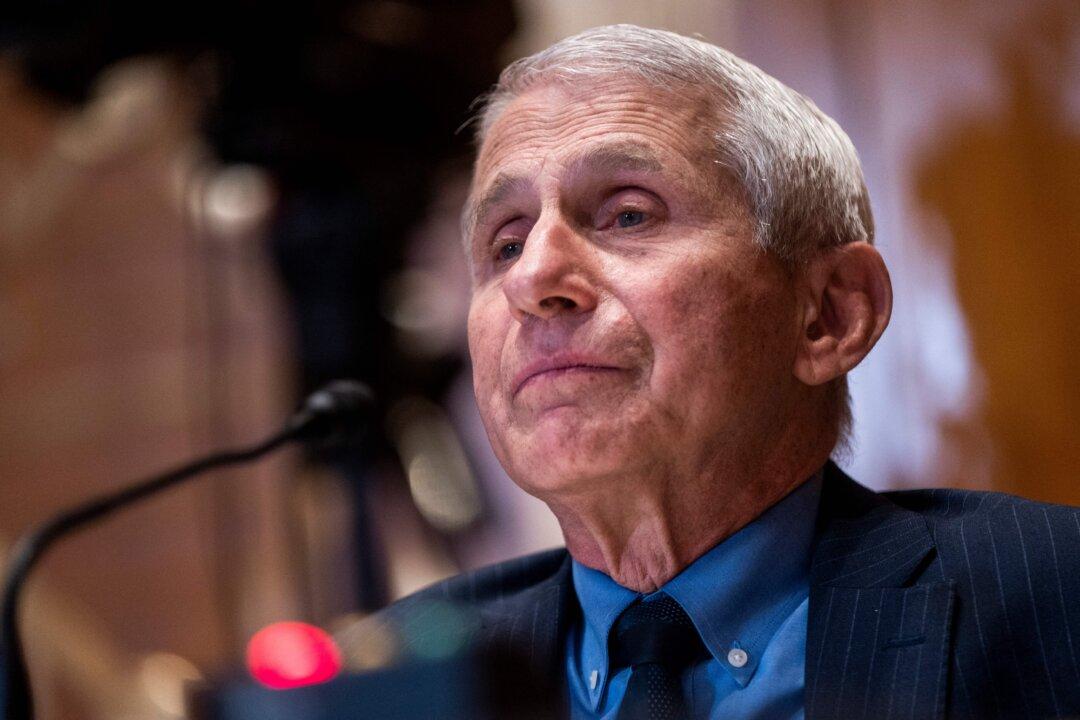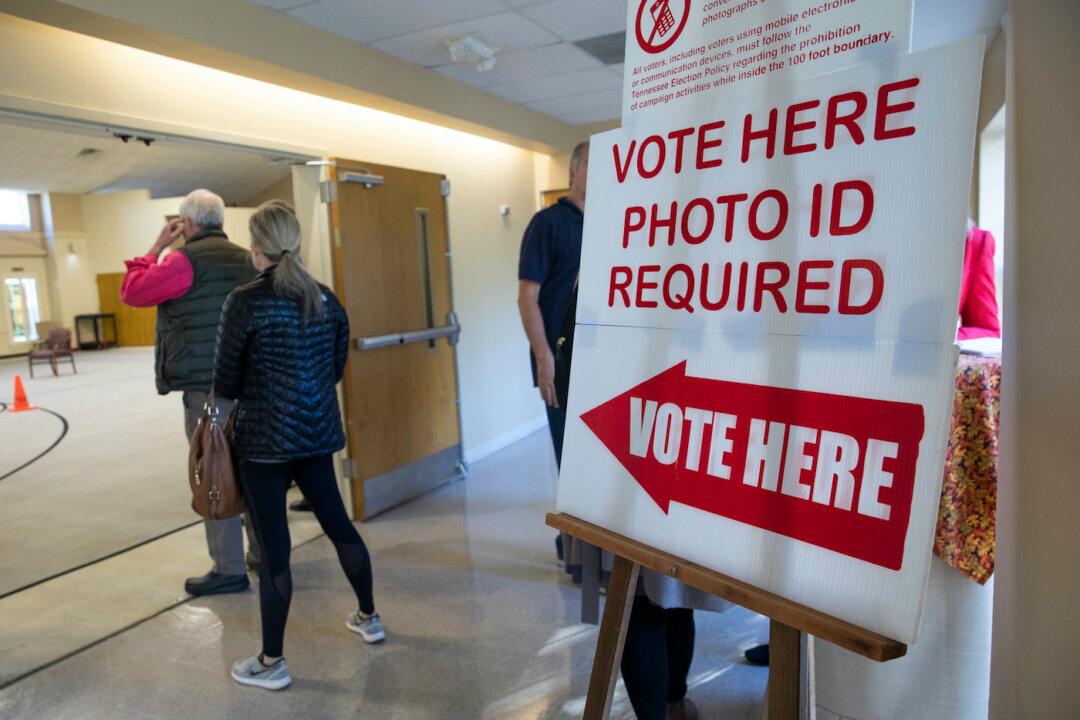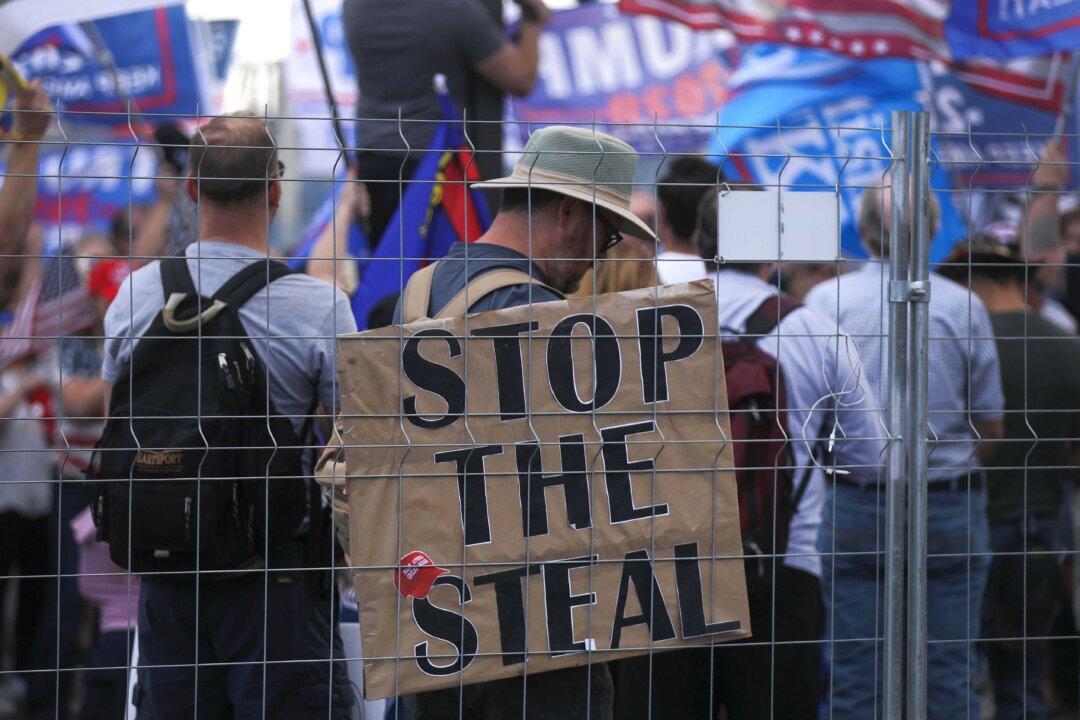New U.S. legislation aimed to stop the use of slave labor in China’s Xinjiang region has the potential to severely disrupt America’s $150 billion fashion industry. At risk is the industry’s access to the 20 percent of the world’s cotton that’s produced in the region, and the fate of 1 million Uyghurs held in China’s prison camps there.
According to industry experts, the UFLPA may significantly raise the prices of cotton, stop the importation of many cotton garments, and further stress supply lines from Asian manufacturers to U.S. consumers.
The new law creates a legal presumption that all goods made in Xinjiang or with Xinjiang raw materials are made with forced labor—and thus are barred from entry into the United States. It will be the responsibility of U.S. importers to provide “clear and convincing” evidence that their supplier in Xinjiang didn’t use forced labor.
Providing this proof may be difficult, or impossible, resulting in a de facto ban on Xinjiang’s products, and on all Chinese products linked to Xinjiang.
After years of lobbying by human rights groups, in 2020, the United States began to restrict the imports of products made by four Xinjiang companies suspected of using forced Uyghur labor. In January 2021, the Trump administration ordered a stop to imports of cotton and tomatoes from Xinjiang. Later that month, the UFLPA legislation was introduced in Congress to attempt to block all imports from the region.
The fashion industry was especially outspoken. One-fifth of the world’s cotton crop is grown in Xinjiang, and then sent to mills and apparel makers all over China and to manufacturers around the world.
In testimony before Congress, Stephen Lamar, president of the American Apparel and Footwear Association, said his industry is working to remove any products produced by forced labor from its supply chains, “but as a country, we simply do not have the capability or capacity to implement, or comply with, or enforce ... the proposed legislation.”
Milestone
The new law is a big victory for Uyghurs and for the rule of law in global supply chains, according to Peter Irwin of the Uyghur Human Rights Project.“This new law is an important milestone,” he said in an interview with The Epoch Times. “It’s the end of companies being able to pretend they don’t know what’s going on in Xinjiang.
“The most significant thing about the law is that it requires importers to present clear and convincing evidence that their products are not made with forced labor.”
Like the apparel manufacturers, Irwin also expects the new law to disrupt supply chains of cotton and other products from Xinjiang and other parts of China. But, he points out, it’s meant to do just that.
“This law imposes an economic cost on China for what it’s doing in Xinjiang,” Irwin said. “Of course, there should be a cost for committing what the U.S. government has called a genocide against the Uyghurs.”
Xinjiang cotton is valuable: an estimated 5 million tons per year, worth about $10 billion at current market prices. Most of it is the high-quality, extra-long-staple cotton used in garments.
In her research report, titled “Laundering Cotton: How Xinjiang Cotton is Obscured in International Supply Chains,” Murphy documents the export strategy that China’s cotton industry uses to hide the cotton’s origin and its connection with forced Uyghur labor.
Pressure
The Better Cotton Initiative (BCI), a London-based nonprofit whose members include Nike, H&M, and Uniqlo, has drawn the ire of the Chinese regime over its stance on cotton from Xinjiang, forcing it to soften its tone.In March 2020, the sustainability-focused organization suspended its licensing and assurance activities in Xinjiang because of what it called “persistent allegations of forced labor.” A few months later, BCI announced that it had stopped all field activities in the region because of “sustained allegations of forced labour and other human rights abuses.”
In response, the regime in Beijing directed a firestorm of criticism at Western fashion brands, igniting calls for boycotts. Landlords closed some H&M stores over a statement on the company’s website expressing concern about forced labor in Xinjiang. In addition, dozens of Chinese celebrities dropped their contracts with BCI member firms.
A recent statement explains that BCI is now focusing on helping manufacturers trace the source of their cotton.
“Retailers and brands need to integrate both sustainability and traceability into their standard business practices. BCI already offers companies a powerful way to support sustainable agricultural practices and farmers’ livelihoods, and now we are focusing our attention on making cotton supply chains more traceable as well.”
BCI told The Epoch Times, in response to an inquiry, that it had no comment other than the statement on its website.
Irwin of the Uyghur Human Rights Project said the new law represents only a beginning.
“China isn’t going to back down very easily,” he told The Epoch Times. “Cotton exports are a massive contributor to Xinjiang’s economy, and the clothing industry is very important to China.
“It’s not just cotton,” he said. “Xinjiang has a tremendous amount of oil and mineral resources, manufacturing, and agriculture. But remember, the issue isn’t just economic, and not just forced labor—it is genocide and crimes against humanity.”
